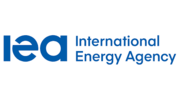News Release from International Energy Agency (IEA)
Wind Industry Profile of
Italy’s progress on energy efficiency provides foundation for meeting broader energy and climate goals, new IEA policy review says
Italy is on track to meet its national emissions reduction and energy efficiency targets for 2030, according to a new in-depth policy review by the IEA, which highlights that cutting red tape further to speed up deployment of renewables should be a priority as Italy prepares to pursue more ambitious EU climate goals and reduce reliance on Russian energy supplies.
Since the last IEA review in 2016, Italy has increased its climate ambitions by endorsing the EU-wide goal of reaching climate neutrality by 2050, as set out in the European Green Deal. While Italy has made progress in a number of areas around energy efficiency and lowering emissions under its national strategy, it will need to make additional efforts to meet the EU’s more ambitious Fit for 55 package, which is yet to be agreed but will include new targets for 2030.
Despite vast natural resources suited to renewables and an industrial base that can drive the phase out of fossil fuels, Italy’s deployment of clean energy technologies has remained relatively slow over the last decade. Electricity generation from renewables more than doubled between 2005 and 2020, but most of this growth occurred in a five-year period (2010-2014), bolstered by generous incentives for solar PV. Since then, lengthy permitting procedures, high administrative costs, availability of land and local opposition have hampered new installations. Reforms made during 2022 and the planned adoption of a new regulatory framework are already addressing these bottlenecks, the IEA policy review notes.
“Italy has made important strides in energy efficiency, helping to improve its resilience to shocks like the global energy crisis and also to advance its strategy for reducing emissions,” said IEA Executive Director Faith Birol. “Accelerating the deployment of renewables and other clean technologies while strengthening energy efficiency further will be essential for making greater progress on energy security and decarbonisation at the same time.”
Today, Italy is heavily reliant on natural gas for both heating and power, with imports making up the lion’s share of its demand. In response to Russia’s invasion of Ukraine, the Italian government has committed to phasing out gas imports from Russia, its single largest supplier, by 2025. Thanks to investments made over the last decade to diversify gas supply routes, including through the Middle East and North Africa, Italy was able to quickly transition away from Russia. This is a delicate balancing act, with Italian gas demand expected to remain strong and likely to increase further in the short term as new gas-fired plants for electricity production come online.
Italy’s commitment to improving energy efficiency has helped it to achieve a decline in energy demand in the buildings sector. The energy demand reduction from buildings is the result of various policy measures, especially the super bonus scheme that offers tax reductions for expenses incurred improving the energy efficiency of buildings. While the scheme has been successful in delivering energy savings, not all socio-economic groups have been able to benefit from it to the same degree. The IEA report therefore recommends that Italy consider implementing tailor-made energy efficiency policies and instruments that successfully address the energy needs of the most vulnerable segments of the population.
Reducing energy poverty is a key policy concern in Italy, and that focus has intensified in the current era of high energy prices. Italy is implementing several policy measures to improve affordability across the board, but there is scope for more targeted interventions. In parallel, raising consumer awareness of the relationship between energy consumption and costs is needed and could be achieved through increased deployment of smart meters and a greater focus on system flexibility – two areas where Italy has already made substantial progress.
“Italy’s international leadership on power system modernisation is commendable,” said Dr Birol. “I hope this report will provide some valuable insights into how Italy can build on its current successes and deliver a sustainable, secure and affordable energy transition. I am also looking forward to working closely with Italy under its G7 Presidency in 2024 to support these priorities within the international community.”
- Source:
- IEA
- Author:
- Press Office
- Link:
- www.iea.org/...
- Keywords:
- IEA, Italy, emissions, renewable energy, deployment, policy review, energy crisis, Europe, EU, Fit for 55, Green Deal, progress























